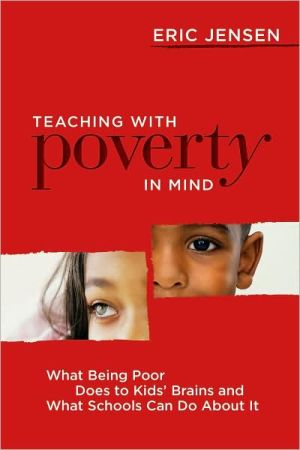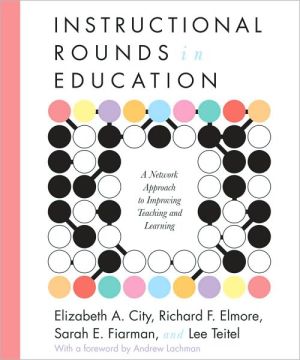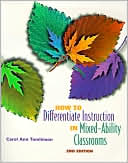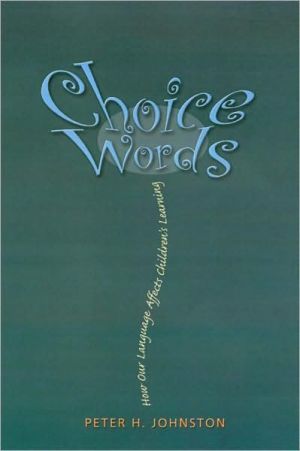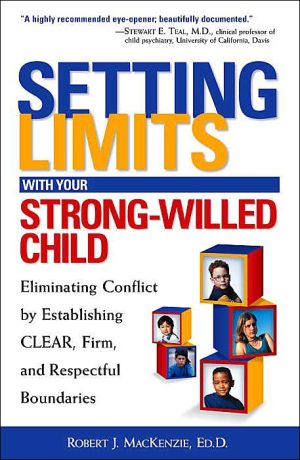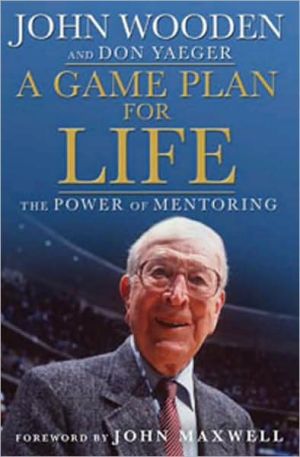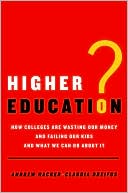Education's End: Why Our Colleges and Universities Have Given up on the Meaning of Life
The question of what living is for—of what one should care about and why—is the most important question a person can ask. Yet under the influence of the modern research ideal, our colleges and universities have expelled this question from their classrooms, judging it unfit for organized study. In this eloquent and carefully considered book, Tony Kronman explores why this has happened and calls for the restoration of life’s most important question to an honored place in higher education.\...
Search in google:
A passionate call for our colleges and universities to prepare young people for lives of fulfillment not just successful careers
Education's End\ Why Our Colleges and Universities Have Given Up on the Meaning of Life \ \ By ANTHONY T. KRONMAN \ Yale University Press\ Copyright © 2007 Anthony T. Kronman\ All right reserved.\ ISBN: 978-0-300-12288-6 \ \ \ Chapter One\ What Is Living For? \ Our lives are the most precious resource we possess, and the question of how to spend them is the most important question we face. The lives we actually lead are the more-or-less well-thought-out answers we give to this question. Our answers depend, of course, on what we value and where we find fulfillment. How should I spend my life? That question immediately invites another. What do I most care about and why? For the sake of what-or who-am I living? What is my life for?\ But what sort of question is this exactly? There are philosophers who have said it is not a real question at all, but only a mirage that looks like one because it has the same form as other, real questions, like the question of what my job is for, or my bank account, or the clock on the wall in my kitchen. And there are comics who, trading on our instinctive sense that there is, at a minimum, something highly peculiar about the question and that it may indeed be an illusion in the end, poke wonderful fun at those who ask it. Woody Allen, in particular, has made a career of puncturing the balloons of intellectuals whogo around pontificating about the meaning of life. Monty Python has made a brilliant contribution to the deflation of such pretensions as well. We all laugh at their jokes because there is something ridiculous about the question of the meaning of life. But if it were merely ridiculous, the humor would be shallow. The jokes are funny in a deep way because they touch a nerve and remind us that however absurd the question seems, we cannot get away from or do without it. The question of what living is for is like no other. It is at once fundamental and illusory, urgent and absurd, solitary and shared. At certain moments, it presses on us with a crushing weight. At others, it tickles like a feather. Most of the time, it isn't a question for us at all.\ Perhaps the most obvious thing to be said about the question is that it has an unavoidably personal quality. How I answer it depends upon my interests, tastes, and talents, as well as my upbringing and social and economic circumstances-in short, upon a thousand factors that distinguish me from you and everyone else. These differences all have a bearing on what I care about, and hence on how I choose to spend my life. The variety of lives that people lead reflects the variety of endowments-temperamental, cultural, and other-with which they start. These differences of endowment fix the perspective or point of view from which we approach the question of what living is for. In a real and important sense, they "personalize" it. The question looks different to me because I see it from the angle of my own distinctive constitution. And of course the same is true for you and everyone else.\ But there is a second, deeper sense in which the question of what my life is for is personal to me. For it is a question that only I can answer. No one else in the world is competent to answer it for me, even if they know as much about my makeup as I do. I may of course learn from others and take instruction from their example. But however enlightening or inspiring I find what they say and do, the answer I give to the question of life's meaning has validity for me only because it is my answer. My answer may be the same as yours. We may care about the same things and lead lives of a similar kind. We may agree on the standards for judging whether the lives of others have purpose and value. I may take comfort in our agreement and be encouraged by it. But what matters most to me-what is of overriding importance-is not that the question of what living is for have a right answer, which someone else perhaps has already found, but that my answer be the right one, even if others discovered it long ago.\ This is not true of all questions. There are many, in fact, of which it is not true. Consider, for example, questions in mathematics. After the seventeenth-century French mathematician Pierre de Fermat died, a book was discovered in his library with a note, written in the margin, that he had discovered a "marvelous proof " for the proposition that there are no non-zero integers x, y, and z such that [x.sup.n] + [y.sup.n] = [z.sup.n] where n is an integer greater than two. Fermat noted that the margins of his book were too narrow to contain the proof he had found. This became known as Fermat's "last" theorem, last because it was the last to be proved. It was not in fact proved until 1995, when the Princeton mathematician Andrew Wiles published his proof. When he did, the world celebrated and his discovery was the subject of much discussion in the popular press. The cause for celebration was obvious. For though only a handful of specialists could follow Wiles's reasoning, it appeared that a troubling question in mathematics had now been decisively answered, and others could scratch it off their list. Other questions remained, but this one, at least, had been settled. There was no longer any reason for other mathematicians to ask themselves whether Fermat's Last Theorem can be proven.\ Some of Wiles's fellow mathematicians were no doubt jealous of his discovery. They wished they had been the one to make it. That is only human. But to the extent they were faithful to their discipline, to the extent they were, as we might say, "true" mathematicians, they had to acknowledge that the important thing was not who made the discovery but that it was made.\ There is a distinction between the personal and impersonal views we take of such discoveries. From an impersonal point of view-from the point of view of the world, which we sometimes call the objective point of view-all that matters is the discovery itself, not the fact that it happens to have been made by one person rather than another. By contrast, from a personal point of view, what matters is that I be that person, that I be the one to have answered the question correctly. Thus while it doesn't matter from an impersonal perspective who first discovered the calculus, Leibniz or Newton, it mattered personally to both Leibniz and Newton, and the quarrel between them on this score eventually became quite bitter. But their quarrel illustrates an important point about the relative priority of these two points of view, the personal and the impersonal, so far as the discovery of the calculus is concerned. For their quarrel seems quite petty and unworthy of the two great geniuses involved. That they quarreled is understandable and forgivable. Like the rest of us, Leibniz and Newton felt the pull of vanity and self-interest. But as mathematicians, they ought to have suppressed these all-too-human instincts in favor of a more "objective" attitude from whose perspective the identity of the discoverer of the calculus is a matter of indifference. And if we feel they "ought" to have done this, that is because, where discoveries of this sort are concerned, the latter, impersonal point of view takes precedence over the personal one which, though it cannot be extinguished, is subordinate in relevance and importance.\ The distinction between these two points of view, and the priority of the impersonal over the personal, is especially clear in disciplines like mathematics where there is an unequivocally right answer to most (if not all) questions one might ask. But the same distinction exists in other fields, where there is more room for debate about the correctness of particular answers. So in history, for example, the question of what caused the Civil War is one that historians have answered in different ways, and that can never have a final and conclusive answer like the answer to the question of whether Fermat's Last Theorem has a proof. There will always be room for disagreement as to whether the answer that any particular historian gives is the right one. Yet still we can distinguish between a historian's conviction that his answer is correct, that he has discovered the truth of the matter, and his satisfaction in being the one to discover it. And here, too, as in the field of mathematics, we believe that what ought to matter most to a historian is the soundness of his answer, which should-in principle-matter just as much if someone else has found it (though that is an attitude requiring a suppression of vanity that borders on the heroic). If a historian is asked whether she would prefer to be the author of a famous and well-regarded book containing an account of the Civil War that she alone knows to be wrong, or be proven wrong by another historian whose reputation consequently eclipses her own, and chooses the former, we say that this shows she is not really a historian at heart because her decision, however understandable in human terms, reverses the order of importance that real historians should attach to their personal and impersonal interests in getting the answer right. And the fact that "right" is here harder (and perhaps impossible) to determine, and that all sorts of subjective elements enter into the answers that historians give to questions of this sort, makes not a whit of difference so far as the priority of the impersonal point of view is concerned.\ In my search for an answer to the question of how I should spend my life, of what commitments and pursuits will give it meaning and value, the priority is the reverse. Here what matters most is not that the right answer be found, by someone or other, but that it be me who finds it. This is, indeed, the only thing that matters. To other questions, like those that mathematicians and historians ask, I naturally want to give the right answer, and it is a disappointment to me if I don't-perhaps even a big disappointment if I'm asked the question on a test. But it is always some consolation that another person has found the right answer even if I haven't. By contrast, my interest in the question of what living is for is overwhelmingly personal. It is no consolation at all that others answer it correctly (whatever that means) if I don't. All I care about, all I should care about, is the quality of the answer I give, not that the "truth of the matter" be grasped and brought to light by someone or other, regardless of who that might be. If my answer is a poor one (whatever that means), that is not merely a disappointment, like failing a math exam. It is a disaster unmitigated by the existence of the right answer I happen to miss. With respect to this question, and perhaps only with respect to it, the personal point of view completely trumps the impersonal one in its importance to the person asking the question. Nor do we think there is anything wrong about according it this priority. Indeed, we would consider it perverse-faithless to the spirit and nature of the question-to do otherwise.\ This is what, in a deeper sense, gives the question its personal character. The question of whether Fermat's Last Theorem has a proof is settled for me because Andrew Wiles settled it. But the question of what living is for can never be settled for me just because it is settled for you or anyone else. I may have much to learn from your words and actions. I may benefit from the study of other people's lives, as recorded in books or presented to me in experience. But I can never defer to their judgment in this matter, as I do in so many others. For nothing that anyone else says or does can ever by itself justify my thinking that the question of the meaning of my life has been answered. Deference and delegation, which are appropriate where an impersonal concern for the truth has priority, are out of place here. The question of how to spend my life, of what my life is for, is a question posed only to me, and I can no more delegate the responsibility for answering it than I can delegate the task of dying.\ * * *\ The essentially personal nature of this question is one reason why the meaning of life is such a rich vein of comic fun. For the idea that one can learn the meaning of life in the same way that one learns the names of the kings of England or the periodic table or masters the elements of economic theory is not just mistaken. It is absurd. I can study all these things in an impersonal way. I can go to school to learn the truth about them without taking the slightest interest in the subject. I can happily acknowledge that the truths of history and chemistry and economics have a value apart from and superior to the value of my own personal knowledge of them. But none of this makes sense if the question is how to spend my life-how to live a life that has purpose and value. It is perverse not to take an interest in the question or to think that the truth of the matter, whatever it might be, has any value at all apart from my recognition of it. The question of what living is for is personal to me in a way the others I study in school are not, and I can't answer it simply by following someone's instructions or reading the right books. This is one source of the humor in Woody Allen's remark that he cheated on his metaphysics exam by looking into the soul of the boy sitting next to him.\ A second reason why the question of life's meaning often seems so funny is the rarity with which we ask it. It is not a question that arises with any regularity in the course of everyday life. It is an "eccentric" question and whole periods in our lives can pass without our asking it. And on those rare occasions when we do, we find it a hard question to confront. We find it difficult to get and keep in focus. La Rochefoucauld compared death to the sun. Just as we cannot stare at the sun for more than a moment, he said, we cannot bear to look death in the eye. The question of the meaning of life is like this too. It seems absurdly disconnected from the questions of everyday living which preoccupy us most of the time, and when we do put it to ourselves in a deliberate way it has a blinding immensity that threatens to blot out all the more familiar landmarks by which we steer our course from day to day. Woody Allen joked that he couldn't understand why some people want to know the secrets of the universe when it's hard enough to find your way around Chinatown. He was reminding us how funny the question of the value and purpose of life looks from the standpoint of everyday living.\ To be sure, history does record the careers of a few rare individuals, like Socrates and Jesus, who were able to keep this question before themselves with a steadiness the rest of us can never attain. We are drawn to them for this reason, quite apart from the substance of their teachings. We are fascinated by their ability to pursue the question of life's meaning with such unflagging seriousness, and divided between our admiration for them and our wonder at their inhuman remoteness (a source both of pathos and humor). Unlike Socrates and Jesus, we confront this question only at long intervals and obliquely at best. For the most part, we spend our days addressing questions of a humbler kind. Should I take an umbrella to work? Call a friend and make a date? Sometimes we face questions of a larger sort. Should I change jobs? Invite an aging parent to live in my home? And sometimes, though rarely, these questions spiral up to an even higher level of concern. How important is my job, relative to the other things in my life? Am I loved by my children? Am I worthy of their love? And once in a very long while, we ask ourselves the question to which all these others seem to lead and in which they are gathered as a final conundrum, the question of what living is for, of whether and why our lives have a meaning that makes them worth living at all. But this last question emerges only rarely and under exceptional circumstances, and when it does, we glimpse it just for a moment, like a distant peak, before it disappears again behind the fog of everyday life, which only a few extraordinary people seem ever to escape for very long.\ Because we confront it so rarely and have such difficulty holding it in view when we do, the question of the value and purpose of life might therefore seem to be one we need not spend much time preparing to meet. Our time and energy are limited, and the demands of everyday life immense. Each day presents a thousand questions that must be answered just to get to the next. Common sense encourages us to devote ourselves to these. It advises us not to be distracted by a question we face so infrequently and that is so difficult to grasp. Prudence counsels us to economize our mental and spiritual resources by concentrating on the issues at hand, for these are challenging enough, and to let the meaning of life look after itself-or risk pointless distraction and the danger of appearing a fool.\ (Continues...)\ \ \ \ \ Excerpted from Education's End by ANTHONY T. KRONMAN Copyright © 2007 by Anthony T. Kronman. Excerpted by permission.\ All rights reserved. No part of this excerpt may be reproduced or reprinted without permission in writing from the publisher.\ Excerpts are provided by Dial-A-Book Inc. solely for the personal use of visitors to this web site. \ \
Acknowledgments xiIntroduction 1What Is Living For? 9Secular Humanism 37The Research Ideal 91Political Correctness 137Spirit in an Age of Science 205Yale Directed Studies Program Readings, 2005-2006 261Notes 267Index 297


